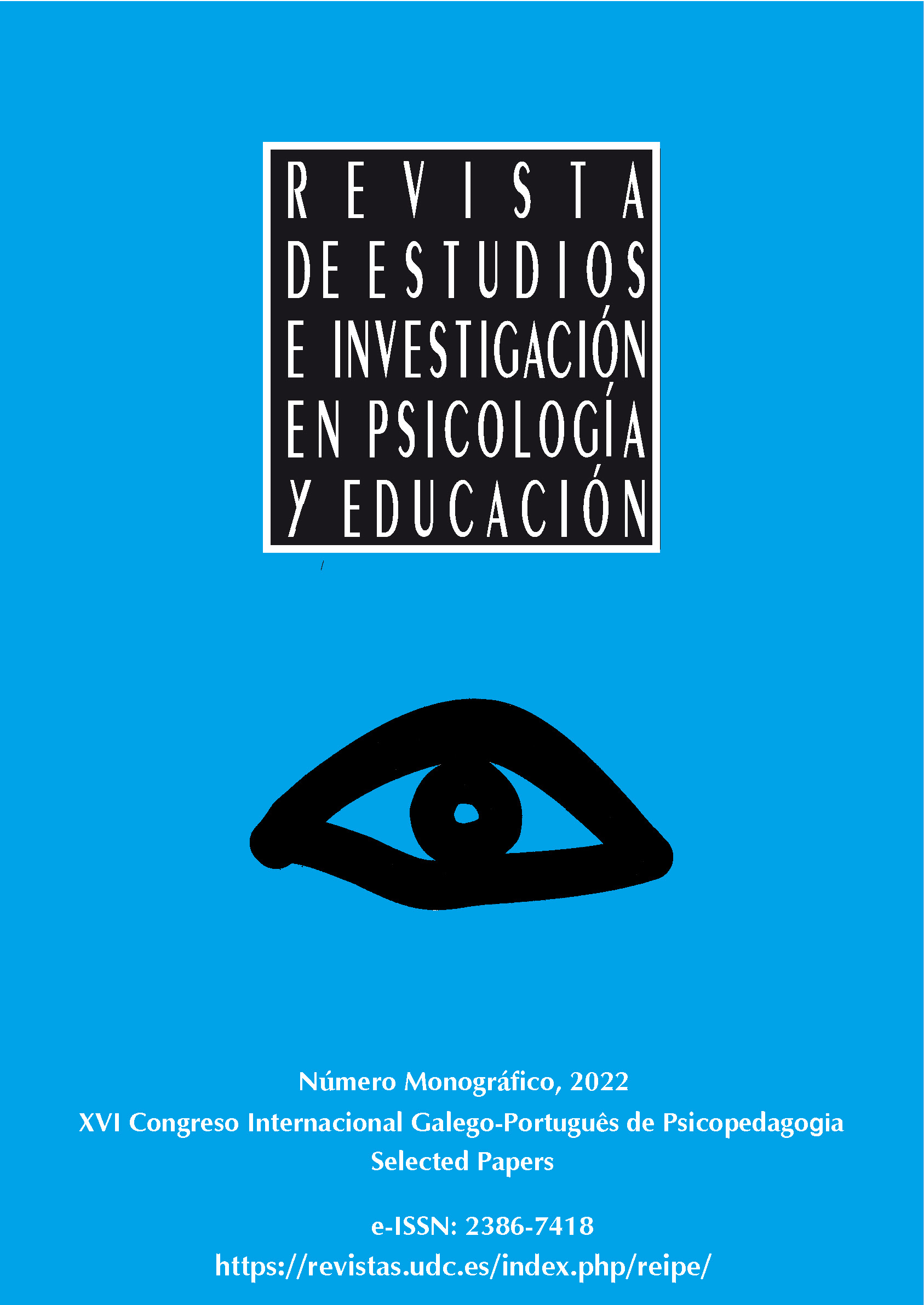Resiliência familiar no contexto do programa Caminhar em Família
DOI:
https://doi.org/10.17979/reipe.2022.9.0.8897Palavras-chave:
Acolhimento Residencial, Programas de Intervenção, Proteção da Infância, Resiliência Familiar, Reunificação FamiliarResumo
A reunificação familiar é um processo complexo que se inicia com o acolhimento residencial da criança e/ou jovem na instituição e continua após o regresso a casa, podendo contribuir para consolidação e sucesso das medidas de proteção. O presente estudo teve como objetivo analisar as dinâmicas geradoras dos processos de resiliência em famílias após implementação do Programa “Caminhar em Família” que visa a reunificação familiar por meio de promoção de competências parentais durante o acolhimento. Foi desenvolvido um estudo de caso qualitativo de caráter descritivo e retrospectivo. A amostra não probabilística foi composta por 4 famílias, sendo 5 progenitores e 6 crianças/jovens que saíram do acolhimento no ano de 2019 e estavam aptas à reunificação. A participação das famílias no programa permitiu confirmar o fortalecimento da resiliência no sistema relacional de pais e filhos graças à compreensão, capacitação e empoderamento suscitados nas diferentes etapas da medida de proteção. A associação conceitual de dois modelos teóricos da resiliência familiar das autoras Froma Walsh e Lietz e Strenght possibilitou identificar diferentes forças e recursos individuais e familiares na gestão da crise e respostas específicas às necessidades das famílias nos diferentes estádios do acolhimento e reunificação. Os resultados reforçam a importância de programas socioeducativos que privilegiam o fortalecimento das dimensões promotoras de aspectos saudáveis que compõe a resiliência em famílias. Estes elementos devem ser os norteadores das intervenções para uma reunificação familiar segura e estável.
Downloads
##plugins.generic.pfl.publicationFactsTitle##
##plugins.generic.pfl.reviewerProfiles## Indisp.
##plugins.generic.pfl.authorStatements##
##plugins.generic.pfl.indexedIn##
-
##plugins.generic.pfl.indexedList##
- ##plugins.generic.pfl.academicSociety##
- Indisp.
- ##plugins.generic.pfl.publisher##
- Universidade da Coruña, Servizo de Publicacións
Referências
Axford, N., Elliott, D.S., & Little, M. (2012). Blueprints for Europe: Promoting evidence-based programmes in children’s services. Psychosocial Intervention, 21(2), 205-214. https://doi.org/10.5093/in2012a11
Balsells, M. À., Pastor, C., Amorós, P., Mateos, A., Ponce, C., & Navajas, A. (2014). Child Welfare and Successful Reunification through the Socio-Educative Process: Training Needs among Biological Families in Spain. Social Sciences, 3(4), 809–826. https://doi.org/10.3390/socsci3040809
Balsells, M. À., Pastor, C., Amorós, P., Fuentes-Peláez, N., Molina, M. C., Mateos, A., Vázquez, N. (2015). Caminar en familia: Programa de competencias parentales durante el acogimiento y la reunificación familiar. Madrid: Ministerio de Sanidad, Servicios Sociales e Igualdad.
Bardin, L. (2011). Análise de conteúdo. Edições 70.
Delgado, P., & Gersão, E. (2018). O acolhimento de crianças e jovens no novo quadro legal. Novos discursos, novas práticas? Análise Social, 226, (1),112-134.
Fixsen, D., Naoom, S., Blase, K., Friedman, R., Wallace, F. (2005). Implementation Research: A Synthesis of the Literature. Tamps, FL: University of South Florida, Louis de la Parte Florida Mental Health Institute, National Implementation Research Network.
Gottfredson, D. C., Cook, T. D., Gardner, F. E. M., Gorman-Smith, D., Howe, G. W., Sandler, I. N., & Zafft, K. M. (2015). Standards of Evidence for Efficacy, Effectiveness, and Scale-up Research in Prevention Science: Next Generation. Prevention Science, 16(7), 893-926. https://doi.org/10.1007/s11121-015-0555-x
Gibbs, G. (2007). Analyzing qualitative data. SAGE Publications Ltd.
Instituto da Segurança Social, I. P. (2020). CASA 2019 - Relatório de Caracterização Anual da Situação de Acolhimento das Crianças e Jovens. https://www.seg-social.pt/publicacoes?kw=CASA
Lietz, C. A., & Strength, M. (2011). Stories of Successful Reunification: A Narrative Study of Family Resilience in Child Welfare. Families in Society, 92(2), 203–210. https://doi.org/10.1606/1044-3894.4102
Marotti, J., Galhardo, A. P. M., Furuyama, R. J., Pigozzo, M. N., Campos, T. N., Laganá, D. C. (2008). Amostragem em pesquisa clínica: tamanho da amostra. Revista de Odontologia da Universidade Cidade de São Paulo, 20 (2), 186-194.
Minayo, M. C. S., Costa, A. P. (2018). Fundamentos Teóricos das Técnicas de Investigação Qualitativa. Revista Lusófona de Educação, 40, 139-153. https://revistas.ulusofona.pt/index.php/rleducacao/article/view/6439
Walsh, F. (1996). Family resilience: A concept and its application. Crisis and challenge. Family Process, 35, 1–14. https://doi.org/10.1111/j.1545-5300.1996.00261.x
Walsh, F. (1998) Strengthening family resilience. The Guilford Press.
Walsh, F. (2005). Fortalecendo a resiliência familiar. Editora Roca.
Walsh, F. (2016). Applying a Family Resilience Framework in Training, Practice, and Research: Mastering the Art of the possible. Family Process, 55, 616-632. https://doi.org/10.1111/famp.12260
Walsh, F. (2016a). Family resilience: a developmental systems framework [
Resiliência familiar: uma estrutura de sistemas de desenvolvimento]. European Journal of Developmental Psychology. 1-12. https://doi.org/10.1080/17405629.2016.1154035
Yunes, M. A. M. (2003). Psicologia positiva e resiliência: O foco no indivíduo e na família. Psicologia em Estudo, 8, 75-84. https://doi.org/10.1590/S1413-73722003000300010
Yunes, M. A. M. (2015). Dimensões conceituais da resiliência e suas interfaces com risco e proteção. In S. Murta, C. Leandro-França, K. Brito, & L. Polejack (Orgs), Prevenção e Promoção em Saúde Mental: Fundamentos, Planejamento e Estratégias de Intervenção (pp. 93-112). Synopisis.
Downloads
Publicado
Como Citar
Edição
Secção
Licença
Os artigos publicados nesta Revista están licenciados com uma Licença Creative Commons Atribuição-CompartilhaIgual 4.0 Internacional.
Os/As autores/as são os titulares dos direitos de exploração (copyright) da sua obra, mas cedem o direito de primeira publicação à Revista de Estudios e Investigación en Psicología y Educación, que poderá publicar em qualquer língua e suporte, divulgar e distribuir o seu conteúdo total ou parcial por todos os meios tecnologicamente disponíveis e através de repositórios.
Permite-se e anima-se os/as autores/as a difundir os artigos aceites para publicação nos site pessoais ou institucionais, antes e após publicação, sempre que se indique claramente que o trabalho é publicado nesta revista e se proporcionem todos os elementos da referenciação bibliográfica junto com o acesso ao documento, preferencialmente através do DOI (caso seja indispensável usar um pdf, a versão final formatada pela Revista deve ser usada). No caso de artigos provenientes de estudos ou projectos financiados, tal será feito dentro dos prazos e condições estabelecidos pelo(s) organismo(s) financiadores da investigação publicada.




